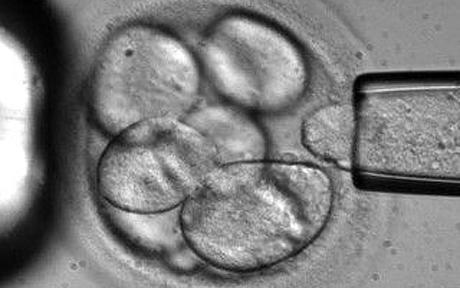A collaborative research team from UCSD and Texas A&M University published a study in Nature Microbiology on Oct. 3 presenting their discoveries that dog microbial patterns associated with inflammatory bowel disease differ from trends in humans.
Previous studies have indicated that the gut microbiome, which consists of intestinal bacteria and viruses, is an important link between genetic predisposition and IBD onset. However, this study was the first detailed comparison of dysbiosis, or how the microbes in the gut interact, in humans and dogs suffering from IBD.
Rob Knight, senior author of the study and professor in the department of pediatrics at the School of Medicine and Computer Science and Engineering, outlined the difficulty of diagnosing IBD in a UC San Diego Health News press release.
“One of the really frustrating things about IBD in humans is that it’s hard to diagnose — it usually requires intestinal biopsies, which are not only imperfect, but invasive and expensive to collect,” Knight stated.
In humans, IBD is a chronic autoimmune disease, whereas the disease in dogs is a common chronic inflammation of the intestines that manifests itself spontaneously. Both human and canine inflammatory bowel diseases have limited methods of treatment and are due to a number of similar potential causes, which include a combination of environmental factors, genetics, weakened immune systems and intestinal microbiota.
Author Yoshiki Vázquez-Baeza clarified that the gut microbiota found in humans and in dogs with IBD are not clearly characterized. They may be the cause of the disease or signals indicative of the onset of IBD.
“We know a lot about IBD in humans,” Vázquez-Baeza told the UCSD Guardian. “Even though we know all of these things, we don’t exactly know if these microbes we see as so characteristic of IBD are part of the problem, if they are originators or if they are the response of how your physiology and microbiota change. In dogs, it’s sort of assumed that it’s the same case, but we don’t really know yet.”
For the study, naturally passed fecal samples were obtained from 85 healthy dogs and 65 dogs with chronic signs of gastrointestinal diseases, such as vomiting, diarrhea and anorexia. According to Vázquez-Baeza, the researchers used a large sample size and measured their data directly against data from a previous study on IBD in humans, enabling them to produce more robust results.
“[Our sample size] was one of the biggest differences in studies that have looked at IBD in dogs,” Vázquez-Baeza said. “Most of them have five or ten samples. Statistical analyses don’t do well with smaller sample sizes. Another reason why I think our study was special was that we combined these data sets with a previously published study on IBD in humans, and we did a direct comparison. That’s why we really trust these results.”
Cases of IBD in dogs were found to be drastically different from humans in their microbial community diversity and structure. In particular, some bacteria such as Fusbacterium were present in humans with IBD but also in healthy dogs.
Furthermore, applying dog samples to dog-specific analyses and comparisons on the dysbiosis index resulted in higher correlations than when applying dog samples to human indices. This suggests that canine gut microbiomes are too different to reliably compare to human microbiomes, and dogs are insufficient animal models for humans with IBD. The authors also indicated that research on species-specific dysbiosis networks are necessary and may help to gain an improved broad understanding of IBD for multiple mammalian models.
In comparing dogs with IBD and without IBD, the researchers found that they could differentiate canine feces with IBD apart from feces without IBD with over a 90 percent accuracy.
Earl Warren College junior Meryl Adam expressed her approval for using microbial information as a diagnostic tool, stressing its individualistic approach in a clinical setting.
“I feel like looking at science like this makes people feel more connected to the environment,” Adam told the Guardian. “It’s not like medicine is a one-size-fits-all. If I knew more about my own microbiome in my colon and gut, I feel like I would be so much more able to monitor my own health — it’s personalized medicine.”
Revelle College sophomore Haley Sherburne described the importance of education and empowerment that comes with microbial research, especially the American Gut Project.
“The heart and brain have long been the focus of the medical community, and the gastrointestinal system has been largely taken for granted,” Sherburne said. “There is so much to learn about [the microbiome], this living ecosystem. That’s one of the reasons why the Citizen Science initiative of the American Gut Project is so pivotal. It is harnessing the power and resources of an entire population, while also educating them and empowering them to care for their own health.”








